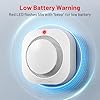Radar detectors are electronic devices that are used to detect the presence of radar. Radar is a type of electromagnetic radiation that is used by police and other law enforcement agencies to measure the speed of vehicles. Radar detectors are designed to alert drivers to the presence of radar so that they can avoid being ticketed for speeding.
Contents
Radar detectors: do you really need one?
If you’re considering purchasing a radar detector for your car, you might be wondering if they’re really worth the money. After all, do you really need a radar detector to avoid getting speeding tickets?
The answer to that question depends on a few factors. If you live in an area with a lot of speed traps or if you tend to speed often, then a radar detector can definitely help you avoid costly tickets. However, if you rarely speed and you’re not worried about getting caught, then you might not need one.
How do radar detectors work?
Radar detectors work by detecting radio waves that are emitted by police radar guns. When the detector picks up these waves, it alerts the driver so that they can slow down before they get pulled over.
Are radar detectors legal?
The answer to this question depends on where you live. In some states, radar detectors are legal to use, while in others, they’re not. It’s important to check the laws in your state before you purchase a radar detector.
How much do radar detectors cost?
Radar detectors can range in price from $50 to $500, depending on the features and quality you’re looking for. If you’re just starting out, you might want to purchase a less expensive model to see if you like using it before investing in a more expensive one.
What are the best radar detectors on the market?
There are a few different radar detectors on the market that are popular among drivers. Some of the most popular brands include Escort, Valentine, and Beltronics.
The pros and cons of radar detectors
Radar detectors are electronic devices that are used to detect the presence of police radar guns. Radar detectors are legal in most states, but there are some states where their use is prohibited. There are both pros and cons to using radar detectors.
Pros
- Radar detectors can help drivers avoid getting speeding tickets.
- Radar detectors can help drivers avoid getting pulled over for other traffic violations.
- Radar detectors can be used to find the location of police officers who are using radar guns.
Cons
- Radar detectors can be expensive.
- Radar detectors can be illegal in some states.
- Radar detectors can give false positives, which can lead to drivers getting pulled over for no reason.
How radar detectors work?
Radar detectors are electronic devices that are used to detect the presence of radar guns used by law enforcement to measure the speed of oncoming vehicles. Radar detectors work by emitting a signal that is picked up by the radar gun and then displayed on a screen in the vehicle. The signal is then analyzed by the radar detector to determine the presence of a radar gun.
Radar detectors are legal in most states, but there are some states that have laws prohibiting their use. There are also some areas where radar detectors are not allowed, such as on military bases and in certain national parks.
The best radar detectors on the market?
offer long-range detection, filtering options, and GPS-based features to help you avoid costly tickets.
Radar detectors are electronic devices that are used to detect the presence of radar guns used by law enforcement to measure the speed of vehicles. Radar detectors are legal in most states, but there are a few states where their use is prohibited. The best radar detectors on the market offer long-range detection, filtering options, and GPS-based features to help you avoid costly tickets.
Radar detectors work by detecting the radio waves that are emitted by radar guns. When the detector picks up these waves, it gives off a warning signal, alerting the driver that there is a radar gun in the area. The best radar detectors have long-range detection, so they can pick up the waves from the radar gun before the driver is within range of the gun. This gives the driver time to slow down before they are within range of the radar gun.
Most radar detectors also have filtering options that can help to reduce false positives. False positives are when the radar detector goes off even though there is no radar gun in the area. This can be caused by things like automatic door openers, motion detectors, or other electronic devices that emit radio waves. By filtering out these false positives, the radar detector can more accurately detect the presence of a radar gun.
Some radar detectors also have GPS-based features that can help you avoid speed traps. Speed traps are areas where law enforcement officers are known to set up radar guns and catch speeding drivers. By knowing the location of these speed traps, you can avoid them and save yourself from getting a ticket. GPS-based radar detectors will usually come with a database of known speed traps, or you can input the locations of speed traps yourself.
If you are looking to avoid costly tickets, the best radar detectors on the market can help. Look for a radar detector with long-range detection, filtering options, and GPS-based features to help you stay safe on the road.
How to choose the right radar detector for you?
Radar detectors are electronic devices that are used to detect the presence of radar guns used by law enforcement to measure the speed of oncoming vehicles. There are a variety of radar detectors on the market, ranging in price and features. When choosing a radar detector, it is important to consider your budget and your needs.
If you are looking for a radar detector that is simple to use and budget-friendly, then you may want to consider a basic model. These radar detectors will provide you with the basic functionality you need to detect radar guns, without a lot of bells and whistles.
If you are willing to spend a bit more on a radar detector, then you may want to consider a model that includes GPS. GPS-enabled radar detectors can provide you with information on fixed speed cameras and red light cameras, as well as live updates on the locations of police officers.
If you are looking for the best possible protection against radar guns, then you may want to consider a radar detector that includes laser detection. Laser detection can help you avoid being targeted by police officers using laser speed guns.
No matter which radar detector you choose, be sure to read the reviews before making your purchase. This will help you find a radar detector that meets your needs and budget.
How to use a radar detector?
Radar detectors are devices that can be used in cars to detect the presence of radar guns used by law enforcement to measure the speed of a passing vehicle. Radar detectors can be used to help drivers avoid getting speeding tickets by alerting them to the presence of a radar gun in the area.
There are a few different ways to use a radar detector. The most common way is to simply mount the detector in the car and turn it on. The detector will then scan for radar signals and provide an audible or visual alert if any are detected. Some radar detectors also have GPS capabilities and can be programmed to alert the driver when they are approaching a known speed trap.
Another way to use a radar detector is to connect it to a smartphone or other mobile device. This allows the driver to view the detector’s readings on a larger screen and also to access additional features such as speed trap locations and real-time traffic information.
No matter how it is used, a radar detector can be a valuable tool for avoiding speeding tickets. Drivers should be aware, however, that radar detectors are illegal in some states and can result in a fine if they are caught using one.
Radar detector myths vs. facts
Radar detectors are a type of electronic device that are designed to detect the presence of radar guns that are used by law enforcement to measure the speed of vehicles. There are a number of different brands and models of radar detectors that are available on the market, and they vary in terms of their features and prices.
Radar detectors can be a helpful tool for drivers who want to avoid getting speeding tickets, but there are a few things to keep in mind about them. First, it is important to know that radar detectors are not legal in all states, so it is important to check the laws in your state before using one.
Second, radar detectors can give false positives, so it is important to be familiar with the features of your particular model and to know how to interpret the readings. Finally, radar detectors can give you a false sense of security, so it is important to drive safely and obey the speed limit even if you have a radar detector.
If you are considering purchasing a radar detector, there are a few things to keep in mind. First, you should decide whether you want a cordless or wired model. Cordless models are more convenient, but they may have shorter battery life and may be more likely to give false positives.
Second, you should decide whether you want a model with GPS, which can be helpful in avoiding speed traps. Finally, you should consider your budget and decide how much you are willing to spend on a radar detector.
Summary
Radar detectors are electronic devices that are used to detect the presence of radar guns that are used by law enforcement to measure the speed of oncoming vehicles.
There are a variety of radar detectors available on the market, and they all work to varying degrees of success. Some of the more popular brands of radar detectors include the Escort Max 360, the Valentine One, and the Beltronics GX65.
Radar detectors can be a useful tool for drivers who want to avoid getting speeding tickets, but they are not perfect. Radar detectors can give false positives, and they can also be defeated by radar-jamming devices. Additionally, some law enforcement agencies are now using laser speed guns, which are not detectable by radar detectors.
If you are considering purchasing a radar detector, be sure to do your research to find the model that best suits your needs.



















